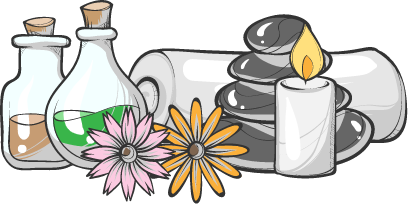AYURVEDIC TREATMENT FOR FROZEN SHOULDER IN KERALA
Frozen shoulder, also known as adhesive capsulitis, affects more than one million Indians per year, with the condition resulting in stiffness, pain in the shoulder joint and restriction in movement. While allopathic treatment includes medications, physiotherapy and surgery, Ayurveda has a more holistic outlook towards frozen shoulder treatment. In accordance with Ayurveda, it is described as Apabahuka, and is categorized as a vatapradhanavyadhi (disease due to a high involvement of Vata), resulting in pain and severely restricted movement.
For permanent relief, ayurvedic treatment for frozen shoulder in Kerala is the best solution, and Sanjeevanam Ayurveda Hospital in Kochi offers some of the best treatment modalities.
WHAT IS FROZEN SHOULDER?
Frozen shoulder is characterized by soreness, stiffness and pain in the shoulder joint. It’s also known as adhesive capsulitis in medical terms, and is a painful joint condition that involves debilitating shoulder pain leading to mobility limitations and lifestyle changes. The symptoms of this musculoskeletal disorder usually build up slowly and worsen gradually.
Frozen shoulder is seen more commonly in people with chronic conditions such as diabetes or thyroid disease; it’s also common in those who have to keep their shoulder still or immobile for longer periods of time. The arising chronic pain can limit the range of movement of the arm, thus restricting a number of normal activities. While symptoms can get better within 1-3 years in some, others might need corticosteroid and other numbing medications injected directly into the joint capsule. Some cases might even require surgery to ease the chronic pain.

CAUSES
AND
RISK FACTORS
The painful frozen shoulder condition is age-related and usually arises in those aged above 40 years, and is more commonly seen in females. It can also occur in those with diabetes, autoimmune diseases, lung diseases, heart problems or those having undergone cardiac procedures. Genetics has also been implicated in frozen shoulder conditions as there appear to be some hereditary risk factors too.
Those who have a history of prior shoulder joint injury or trauma, excessive or heavy exercising, stress problems, frequent fasting, excessive dry and salty food consumption, alcohol binge drinking, etc., can also be the cause be the cause behind their frozen shoulder. Other reasons could be sedentary lifestyles, staying in a certain position for longer periods of time, immobility of the arms, can all eventually lead to frozen shoulder. Other painful conditions like bursitis, synovitis, tendinitis or rotator cuff injury can all also lead to frozen shoulder and severe pain.

AYURVEDIC TREATMENT PROCEDURES
The main focus of any ayurvedic treatment is to eliminate the underlying main root cause of any disease condition, while achieving permanent relief from the symptoms. The goal is to achieve this without causing any side effects.
Ayurveda offers holistic treatment for frozen shoulder, treatment that is focused on both external and internal therapies; internal therapies help reduce inflammation and pain while external therapies like Panchakarma, massage and abhyanga help in reducing stiffness. Internal medications used to reduce stiffness and restore normal function include herbal formulations such as Nirgundi, Guggulu, Rasna and Prasaranyadi; these can be administered in the form of decoctions like Aristas and Kashayas.
Do note that treatments in Ayurveda are always based on the individual’s unique Vata balancing requirements. Here’s a look at some of the common Ayurveda treatments used to purge the body permanently off the offending toxins:
Snehana
Includes the application of herbal oils in the form of massages and ghee and herbs to be taken orally for 3-7 days, to aid in loosening up ama, or toxins and doshas from the body.
Swedana
Is a thermal or non-thermal procedure that helps cure stiffness and heaviness by causing the body to perspire; this process liquifies the vitiated doshas, bringing them to the gut, from where they get eliminated by panchakarma treatments.
Shirovasti
A therapy involving the retention of medicated oil on the head using a cap for a specific period of time to improve brain function and mental clarity.
Basti
Treatment includes enema made with oil and fats and oriented towards balancing of Vata energy.
Nasya
Therapy includes instilling herbal oils and powders through the nasal route. It’s ideal for diseases above the base of the neck.
YOGA & DIET FOR FROZEN SHOULDER

Modern sedentary lifestyles involving long hours of immobility, hunched over a desk, are bad for the posture, and can result in a variety of point issues including frozen shoulder. Yoga can help both as a preventative as well as a curative treatment for frozen shoulder.
There are a number of yoga asanas (poses) and stretching exercises that can help in attaining flexibility in the shoulder region and releasing the tension from the stressed-out muscles. These will not only relieve the shoulder area, but also open up the tightness in the upper back and the upper chest that cause the muscles to become weak. In this way, yoga is the holistic wellness way forward that also prevents slumping of the spine, and strengthens it instead while improving the overall posture. Having a proper understanding of balanced diets and following an anti-inflammatory diet further help in avoiding disease conditions such as frozen shoulder.

FREQUENTLY ASKED
QUESTIONS
How to treat frozen shoulder at home?
Though there are several therapies for frozen shoulder, there are some practical home remedies that can be practiced from home too. Depending upon the stage of the condition and level of pain, you could try using a heat pack or do simple physiotherapist-recommended joint exercises to reduce stiffness and restore blood circulation. Massaging the area gently twice a day with warm oil is another home remedy that can treat frozen shoulder to some extent.
How to relieve frozen shoulder pain?
Relief from frozen shoulder can be attained through the use of NSAID pain killers or heat/ice packs for immediate pain relief. Physical therapy involving a number of gentle exercises that relax the muscles around the joint are also helpful. But if these don’t work either, you could be given steroid injections or hydrodilatation where sterile water is injected into the joint capsule for lubrication of movement. Surgery is considered as a last option here.
How to differentiate between frozen shoulder and impingement?
Differentiating between an impingement and a frozen shoulder can get problematic as they occur at the same joint. However, a frozen shoulder causes the patient to be unable to turn their arm out and the condition can get quite painful – even when the arm is lying motionless during sleep. A shoulder impingement on the other hand is caused by a swollen rotator cuff, resulting in pain when moved in a certain range of motion.
Why frozen shoulder is common in diabetic patients?
The incidence of frozen shoulder is estimated to be 2-5.3% in the general population, but 10-39% among diabetic patients. While doctors aren’t sure why type 1 and type 2 diabetic patients are more prone to frozen shoulder, it’s been postulated that it could be due to their higher glucose levels. The glucose molecules might be attaching to the collagen lining of the shoulder joint, making a stiff area, even more stiff.
What are the exercises for frozen shoulder?
Some of the best physiotherapist recommended stretching exercises for frozen shoulder include: Pendulum stretch, Towel stretch, Finger walk, Armpit stretch and Cross-body reach. Outward rotation and inward rotation door stretch are strengthening exercises for frozen shoulder to be practiced once the range of motion starts to improve. Always warm up the shoulder joint prior to starting exercise; a warm 10-15 minutes long shower or bath would help in this matter.
AYURVEDIC CENTER FOR FROZEN SHOULDER TREATMENT IN KERALA
Kerala is renowned as being the home of authentic ayurvedic treatments. With easy availability of organically growing medicinal herbs on the slopes of the bordering Western Ghats, the treatments here are still as genuine as they were thousands of years ago.
For those looking for ayurvedic treatment for frozen shoulder in Cochin, the Sanjeevanam Ayurveda Hospital offers carefully-curated custom made ayurvedic treatments suitable for individual needs. Designed like a resort-cum-hospital, the hospital offers state-of-the-art ayurvedic medical facilities, multiple treatment rooms, specialists in multiple disciples as well as caring staff. The peaceful environment, as well as excellent amenities make your healing process at the Sanjeevanam Ayurveda Hospital an enjoyable one!
BOOK APPOINTMENT























